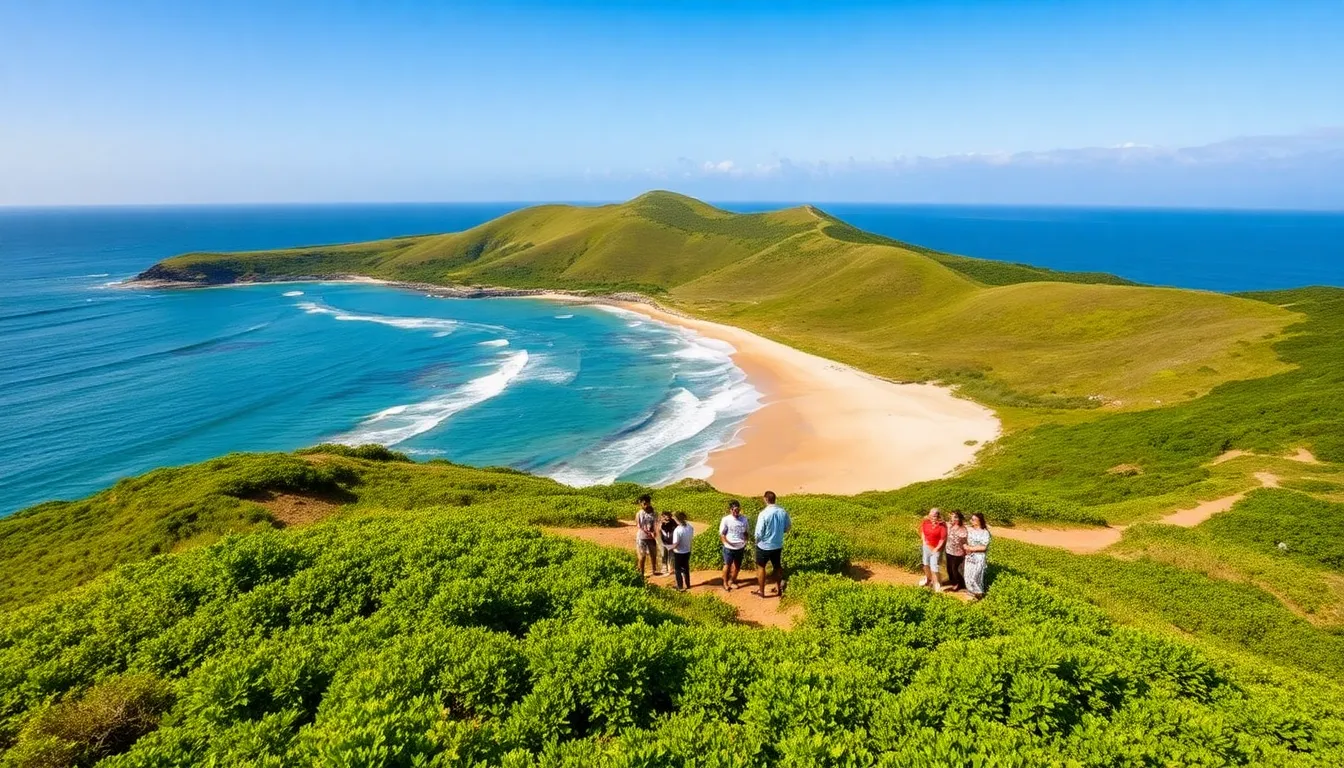Picture a small, hidden gem in the Indian Ocean: welcome to Rhudrigues. This island, often overshadowed by its famous neighbor Mauritius, has a character all its own, vibrant culture, and stunning landscapes that will captivate anyone who takes the time to dive deeper. Curious about what makes Rhudrigues worth your while? You’re not alone. This article promises to unveil the essence of Rhudrigues, from its rich history and diverse culture to its unique biodiversity and economic potential. Grab your virtual passport, and let’s explore.
Understanding Rhudrigues: Overview and Significance

Rhudrigues, often referred to simply as Rodrigues, is a small island that forms part of the Republic of Mauritius. Nestled approximately 560 kilometers (about 350 miles) east of Mauritius, it boasts stunning landscapes characterized by rolling hills, lush greenery, and pristine beaches. Covering about 108 square kilometers, this island is rich in biodiversity and offers a unique blend of influences from Africa, Europe, and Asia. These influences create a culture that is both diverse and distinct. What makes Rhudrigues particularly significant is its role as a sanctuary for endemic species and its commitment to preserving natural habitats. Here, the local population takes immense pride in their environment, making efforts to sustain this pristine locale for future generations.
Rhudrigues
The history of Rhudrigues is a tapestry woven with tales of explorers, colonial powers, and the resilience of its inhabitants. Discovered in 1500 by Portuguese explorers, it remained largely uninhabited until the French arrived in the 18th century. The French brought with them sugarcane cultivation, which fundamentally transformed the island’s economy. Later, in 1810, the British took control, leaving a significant mark on the island’s governance and social structure.
During the colonial era, the people of Rhudrigues faced many challenges, including the effects of slavery and indentured labor. But, they persevered, and this struggle lent a rich narrative of determination and adaptation that continues to shape Rhudrigues’ identity today. The island’s historical context is essential not just for understanding its present but also for appreciating the cultural resilience of its people.
Cultural Aspects of Rhudrigues
The culture of Rhudrigues is a vibrant mosaic of traditions, languages, and cuisines. With a population that primarily speaks Rodrigues Creole, alongside French and English, communication here reflects the island’s heritage. The mix brings a unique charm to the local dialect, making conversations an engaging experience.
Festivals play a significant role in the cultural calendar, with celebrations like the Fête de la Musique showcasing local music, arts, and culinary delights. Rhudrigues is also known for its musical traditions. Sega, a dance form with roots in African culture, permeates the island. Locals often engage in Sega performances during special events, creating a fun and communal atmosphere.
Food lovers will find a variety of delightful local dishes to savor, from fresh seafood to exotic fruits. Dishes are often enhanced with local spices, making the culinary experience uniquely Rhudriguan. Food, music, and dance coalesce in a way that embodies the spirit of this island, inviting visitors to participate in the culture wholeheartedly.
Biodiversity and Natural Features of Rhudrigues
Rhudrigues is renowned for its biodiversity that captivates nature enthusiasts and eco-tourists alike. The island is adorned with stunning landscapes: from its verdant mountains to its turquoise waters, the natural beauty here is mesmerizing. The Rodrigues Nature Reserve is a particular highlight, home to numerous endemic species, some of which are found nowhere else on Earth.
Among the unique fauna, the Rodrigues fruit bat and the Rodrigues warbler stand out as critical conservation icons. The local government and various NGOs work earnestly to protect these species, recognizing that preserving biodiversity is crucial not only for nature but for Rhudrigues’ tourism and educational opportunities as well.
The island also features captivating flora, with endemic plants adding a touch of charm to its landscape. Trails through the lush forests allow visitors to immerse themselves in the natural world, offering both adventure and tranquility. This connection to nature fosters a sense of stewardship among residents, who are ever more aware of the value of their ecological heritage.
Economic Activities and Development in Rhudrigues
The economy of Rhudrigues has historically been centered around agriculture and fishing, but tourism is increasingly becoming the backbone of economic development. The island’s stunning natural scenery and unique culture attract visitors from around the globe, eager to experience its beauty firsthand. Local enterprises are blooming, from guesthouses to artisanal markets, all contributing to the economy.
Agriculture still plays a vital role, especially with sugarcane plantations dominating the landscape. Farmers often practice sustainable methods to ensure that the economic benefits do not come at the expense of the environment. Fishing is prevalent as well, with the surrounding waters rich in diverse marine life.
Recently, efforts to diversify the economy have centered on promoting eco-tourism. Sustainable practices are encouraged among local businesses, paving the way for growth while respecting the island’s delicate ecosystems. This initiative not only boosts the economy but also fosters a sense of community pride and responsibility.
Future Prospects and Conservation Efforts in Rhudrigues
Looking ahead, the future of Rhudrigues hinges on balancing development with conservation. Local authorities, NGOs, and community leaders are actively collaborating to create strategies that ensure the island’s ecological integrity while encouraging sustainable tourism. The emphasis is on creating economic opportunities without compromising natural resources.
Innovative conservation projects aimed at protecting endemic species are on the rise. Educational programs help raise awareness among residents, fostering a culture of environmental stewardship. Besides, the island’s efforts to integrate eco-friendly practices into daily life are setting a benchmark for small island economies worldwide.
As sustainable practices take root, Rhudrigues is poised to captivate future generations. The vision of a thriving economy intertwined with environmental responsibility could serve as a model for other islands facing similar challenges.















